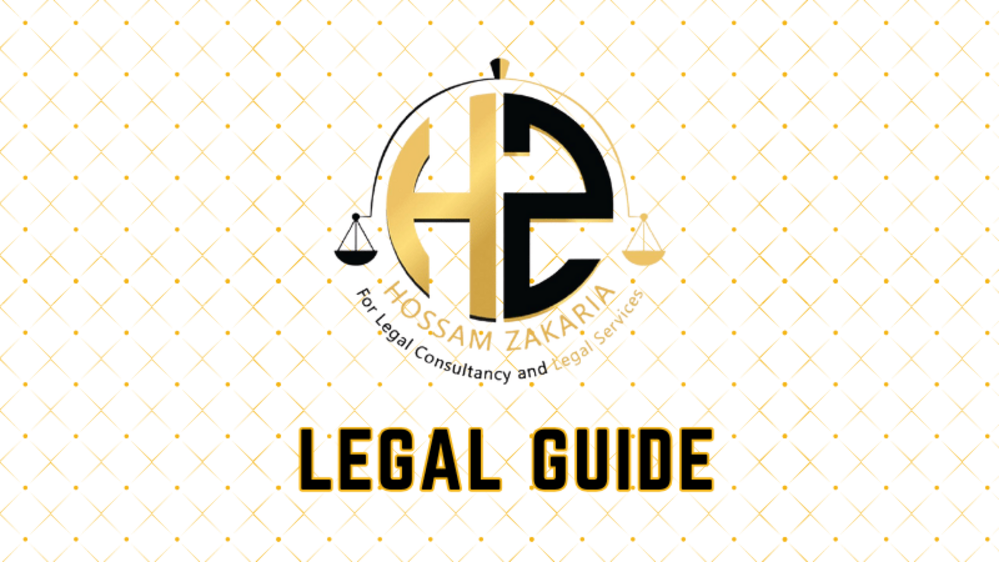Introduction
In today’s dynamic business landscape across the Middle East, commercial disputes are inevitable. How such disputes are resolved, however, holds significant implications for foreign investors, UAE-based companies, and regional business leaders. Recent legislative modernizations in Saudi Arabia’s arbitration law stand at the crossroads of commercial certainty and efficient dispute resolution. For UAE businesses and legal professionals, understanding the authority of arbitral tribunals under the Saudi Arbitration Law is no longer academic—it’s a commercial necessity. This article offers a comprehensive, consultancy-grade analysis of how the Saudi Arbitration Law empowers arbitral tribunals, explores its UAE legal implications, and provides expert guidance for organizations keen to unlock its opportunities or mitigate its risks. The guidance is especially critical in light of UAE legal reforms, harmonization initiatives, and the region’s drive to bolster international arbitration as the preferred dispute resolution mechanism. Our analysis draws only from authoritative sources, including UAE Federal Decrees, Saudi Royal Decrees, the UAE Ministry of Justice, and other official legal materials. Executives, in-house counsel, HR managers, and entrepreneurs operating in the Gulf benefit directly from understanding the practical, cross-border significance of these legislative updates.
Table of Contents
- Regional Arbitration in Context: The Saudi and UAE Legal Landscape
- Legal Overview: The Saudi Arbitration Law and Its Authority Framework
- Arbitral Tribunal Powers Explained
- UAE Legal Implications of Saudi Arbitration Authority
- Compliance Risks and Strategies for UAE Businesses
- Case Studies and Practical Scenarios
- Comparing Old and New Arbitration Regimes
- Best Practices and Forward-Looking Guidance
- Conclusion: Navigating Modern Arbitration in the UAE and Saudi Arabia
Regional Arbitration in Context: The Saudi and UAE Legal Landscape
Why Arbitration and Why Now?
The Gulf region, including both Saudi Arabia and the UAE, has steadily developed as a leading destination for commercial arbitration. Arbitration provides privacy, neutrality, and enforceability—key for both local and international enterprises. Both nations have taken steps to bring their legislation in line with internationally recognized frameworks, following the UNCITRAL Model Law and the New York Convention.
Legal Updates Affecting UAE Stakeholders
In 2018, the UAE premiered Federal Law No. 6 (UAE Arbitration Law), modernizing its arbitration structure. Saudi Arabia’s Royal Decree No. M/34 of 1433H (2012), known as the Saudi Arbitration Law, and the more recent Implementing Regulations (2020), aim to make the Kingdom a global arbitration hub. These reforms directly affect UAE investors, multinational employers, and cross-border commercial activity—especially as more contracts specify arbitral proceedings in Riyadh, Dubai, or Abu Dhabi.
Legal Overview: The Saudi Arbitration Law and Its Authority Framework
Official Basis and Scope
The Saudi Arbitration Law (Royal Decree No. M/34 dated 24/5/1433H, corresponding to 2012), represents a significant evolution. Drawing heavily from international arbitration standards, the law establishes the autonomy, powers, and obligations of arbitral tribunals appointed to resolve commercial, civil, and labor disputes. Decrees issued by the Saudi Ministry of Justice and the authorities constituting the Saudi Center for Commercial Arbitration (SCCA) reinforce these legislative goals.
Core Provisions Defining Tribunal Authority
- Competence-Competence Principle: The tribunal has the power to determine its own jurisdiction (Article 20).
- Procedural Autonomy: Parties may choose procedures, and the tribunal may set its own processes (Articles 25, 28).
- Interim Relief: The tribunal can grant various interim measures (Article 29).
- Interplay with Courts: Saudi courts generally support, rather than interfere with, the tribunal’s exercise of powers, except for annulment and enforcement proceedings.
Arbitral Tribunal Powers Explained
1. Jurisdiction and Admissibility
Unlike in the past, where courts often retained ultimate say over “arbitrability,” tribunals now have the initial (and often decisive) word on whether a dispute falls within their mandate. Article 20 enshrines the “competence-competence” doctrine, akin to Article 23 of the UAE Federal Law No. 6 of 2018. Parties operating in both jurisdictions must recognize that initial jurisdictional challenges are typically decided by the very arbitral panel appointed to hear the merits.
2. Conducting the Proceedings
Article 25 allows parties to shape the procedure—timelines, evidence rules, and sittings location—subject only to minimum due process standards. In the absence of agreement, the tribunal may set those procedures.
3. Interim and Conservatory Measures
Under Article 29, tribunals can order urgent measures to preserve assets, maintain status quo, or prevent harm—an authority previously reserved for courts. This change enhances efficacy and reduces matters bouncing between arbitral and judicial fora.
4. Decision-Making and Award Rendering
The tribunal issues a final, binding award (Article 42), subject to limited annulment grounds. In line with the UAE, this solidifies the tribunal’s authority to resolve disputes definitively and without delay.
UAE Legal Implications of Saudi Arbitration Authority
1. Cross-Border Enforcement of Arbitral Awards
Saudi and UAE courts are increasingly aligned in recognizing and enforcing arbitral awards, especially since both states are signatories to the New York Convention. For UAE-based companies, awards issued by Saudi-seated tribunals are now more credible and enforceable than ever before.
2. Risk-Shifting in Contract Drafting
Legal updates to Saudi arbitration law require careful review of arbitral clauses in UAE-based contracts, especially those with Saudi counter-parties. Choices on seat, institutional rules, and language must be strategic to avoid unforeseen risks or loss of procedural control.
3. Judicial Supervision: Less Interference, More Certainty
Recent statutory reforms in both jurisdictions mean that the freedom of parties to choose (and for tribunals to execute) bespoke procedures is respected—minimizing interruptions by local courts. This advances legal certainty for multinationals and local SMEs alike.
4. Practical Example
Scenario: A UAE-headquartered retail group contracts with a Saudi distributor, specifying SCCA arbitration in Jeddah. Upon a dispute, the Saudi tribunal grants a pre-award injunction to freeze suspect funds. Under the new Saudi Arbitration Law, this order enjoys streamlined enforcement, whereas under previous regimes, it may have faced court delays. The result: rapid protection of business interests, without undermining enforceability in UAE courts.
Compliance Risks and Strategies for UAE Businesses
Potential Risks for UAE-Based Companies
- Jurisdictional Pitfalls: Failure to clarify which disputes are subject to arbitration may result in unenforceable or delayed resolutions.
- Procedural Surprises: Ignorance of how Saudi tribunals exercise their discretion can undermine a UAE company’s preparedness during the process.
- Enforcement Obstacles: Inadequate drafting of arbitration clauses or reliance on outdated assumptions can lead to non-enforceable awards or costly court battles in either country.
Recommended Compliance Strategies
| Risk/Challenge | Practical Strategy | Official Reference |
|---|---|---|
| Unclear or Outdated Arbitration Clause | Review and update contract clauses, referencing contemporary Saudi and UAE arbitration statutes | Saudi Arbitration Law, UAE Federal Law No. 6 of 2018 |
| Procedural Mismatch | Specify procedural rules (e.g., SCCA, DIAC) and language; retain local counsel | Articles 25, 28 Saudi Arbitration Law |
| Enforcement Delay | Ensure award recognizability by UAE courts (e.g., via detailed reasoning, compliance with due process) | Riyadh/New York Convention, UAE Ministry of Justice |
Visual Suggestion
“Consider including a compliance checklist infographic outlining steps for drafting enforceable Saudi-UAE arbitration clauses.”
Case Studies and Practical Scenarios
Case Study 1: The Construction Joint Venture
Facts: A Dubai-headquartered infrastructure firm partners with a Saudi company to develop a large project near Riyadh. Disputes arise during project delivery.
- Action: The contract references arbitration under SCCA Rules, seated in Riyadh.
- Result: The UAE company successfully brings an interim application to the tribunal for preservation of on-site evidence, which is granted within days. This outcome would have likely been delayed under the old Saudi court-centric approach.
- Lesson: Knowing that the Saudi tribunal holds such procedural authority, the UAE firm was able to prepare appropriate documentation and legal strategy, expediting the dispute resolution process and securing its project interests.
Case Study 2: Distribution Agreement Dispute
Facts: An Abu Dhabi electronics supplier enters a sales contract with a Saudi wholesaler, specifying “arbitration in accordance with the Saudi Arbitration Law.” The Saudi party challenges the arbitral tribunal’s jurisdiction after the proceedings commence.
- Action: The tribunal relies on Article 20 (competence-competence) to rule on its own jurisdiction before addressing the merits.
- Result: Streamlined process; jurisdictional objections are resolved without initial court intervention, narrowing room for delay tactics.
- Lesson: UAE-based businesses must understand that Saudi arbitral tribunals have first say on jurisdiction—drafting clear arbitration clauses is essential to preempt unwanted satellite litigation.
Comparing Old and New Arbitration Regimes
| Feature | Old Saudi Regime (Pre-2012) | New Saudi Law (2012+) | UAE Arbitration Law Reference |
|---|---|---|---|
| Party Autonomy | Limited; heavy court oversight | Highly respected; minimal interference | Articles 19, 23-25 UAE Federal Law No. 6 of 2018 |
| Tribunal’s Authority | Restricted; courts could revisit merits and procedures | Broad and definitive; tribunals rule on procedure and most disputes | Articles 23, 33 UAE Law |
| Interim Relief | Rare, court-driven | Clearly permissible by tribunal | Articles 21, 32 of UAE Law |
| Award Enforcement | Uncertain, slow | Expedited, internationally recognized | Article 52 etc., UAE Law |
Best Practices and Forward-Looking Guidance
1. Drafting Robust Arbitration Clauses
- Clearly designate seat, institution, and governing law.
- Expressly permit tribunal to grant interim relief (including asset preservation orders).
- Anticipate language and document production expectations, referencing both UAE and Saudi standards.
2. Selecting Qualified Arbitrators
Choose arbitrators who are not only bilingual but have demonstrated experience applying Saudi and UAE laws—this reduces costly procedural missteps.
3. Ongoing Compliance Training
HR and compliance teams should receive regular updates on evolving Saudi and UAE arbitration laws and best practices, leveraging official government training portals and bulletins.
Visual Suggestion
“Insert a flow diagram illustrating the lifecycle of a Saudi-UAE arbitration—from initiation to enforcement.”
Conclusion: Navigating Modern Arbitration in the UAE and Saudi Arabia
The transformation of Saudi arbitration law and the UAE’s ongoing alignment with international arbitration best practice creates unprecedented opportunity—and risk. The enhanced authority of arbitral tribunals, codified procedural autonomy, and streamlined enforcement now underpin legal certainty for cross-border business. Yet, these very strengths demand vigilance: outdated contracts, neglected compliance, or misplaced reliance on historical assumptions can undermine hard-won business rights. For legal departments, executives, and stakeholders in the UAE, the practical path forward includes: (1) meticulous review of arbitration language in contracts, (2) proactive education regarding jurisdiction-specific powers of tribunals, and (3) collaboration with experienced legal counsel attuned to the rapidly shifting landscape. As the UAE and Saudi Arabia deepen legal cooperation and commercial ties, effective navigation of arbitration authority will define tomorrow’s business success. The time to adapt is now—for those who prioritize legal compliance, foresight, and competitiveness in the modern Gulf economy.



